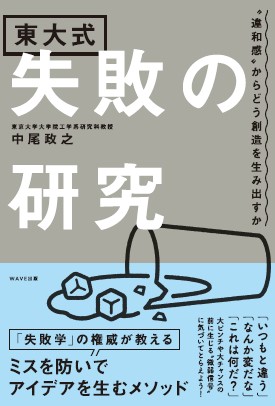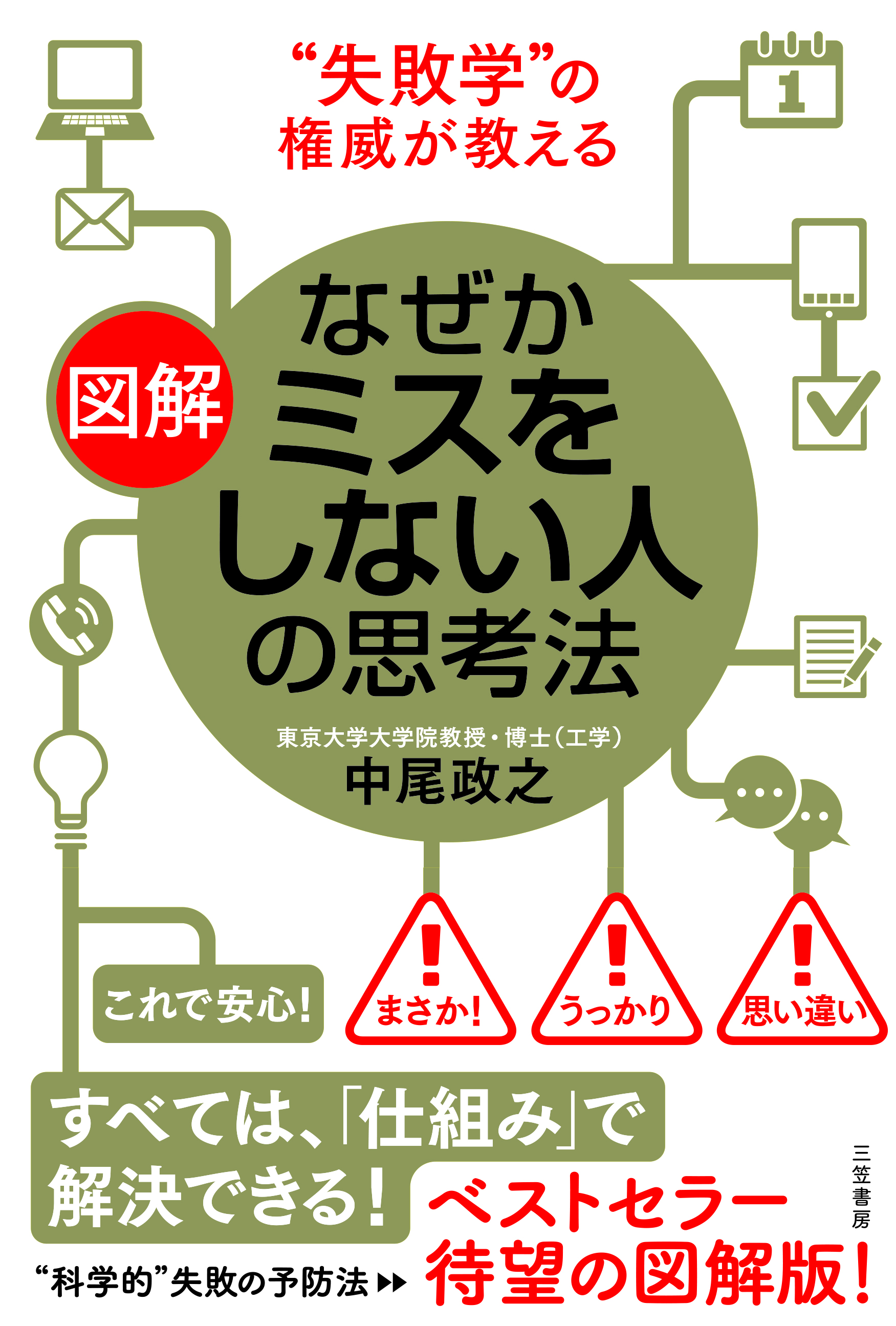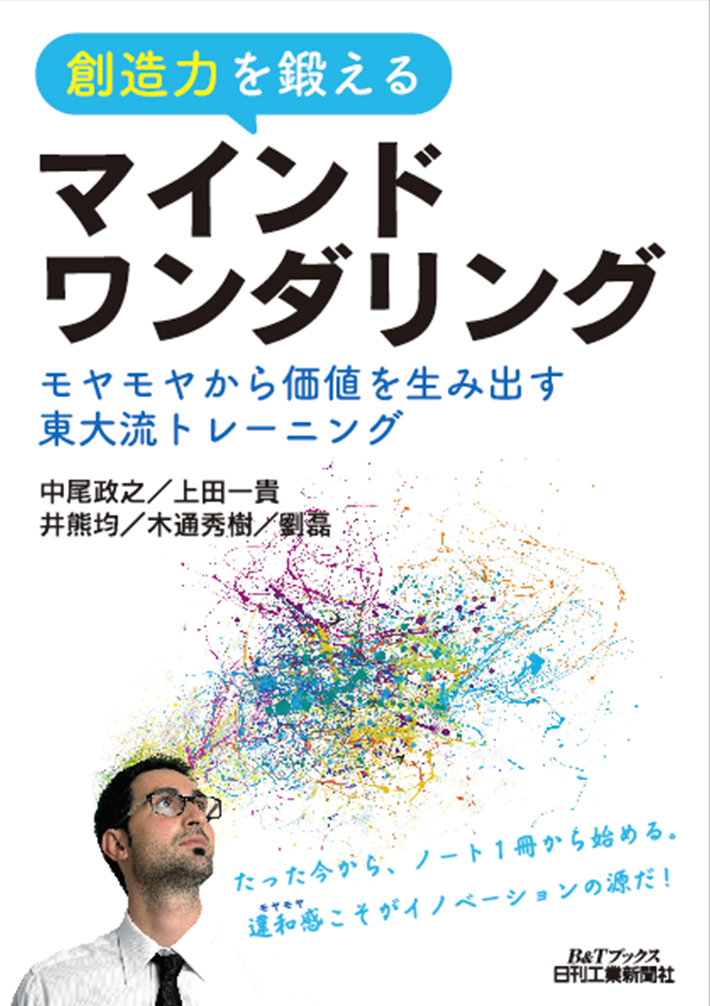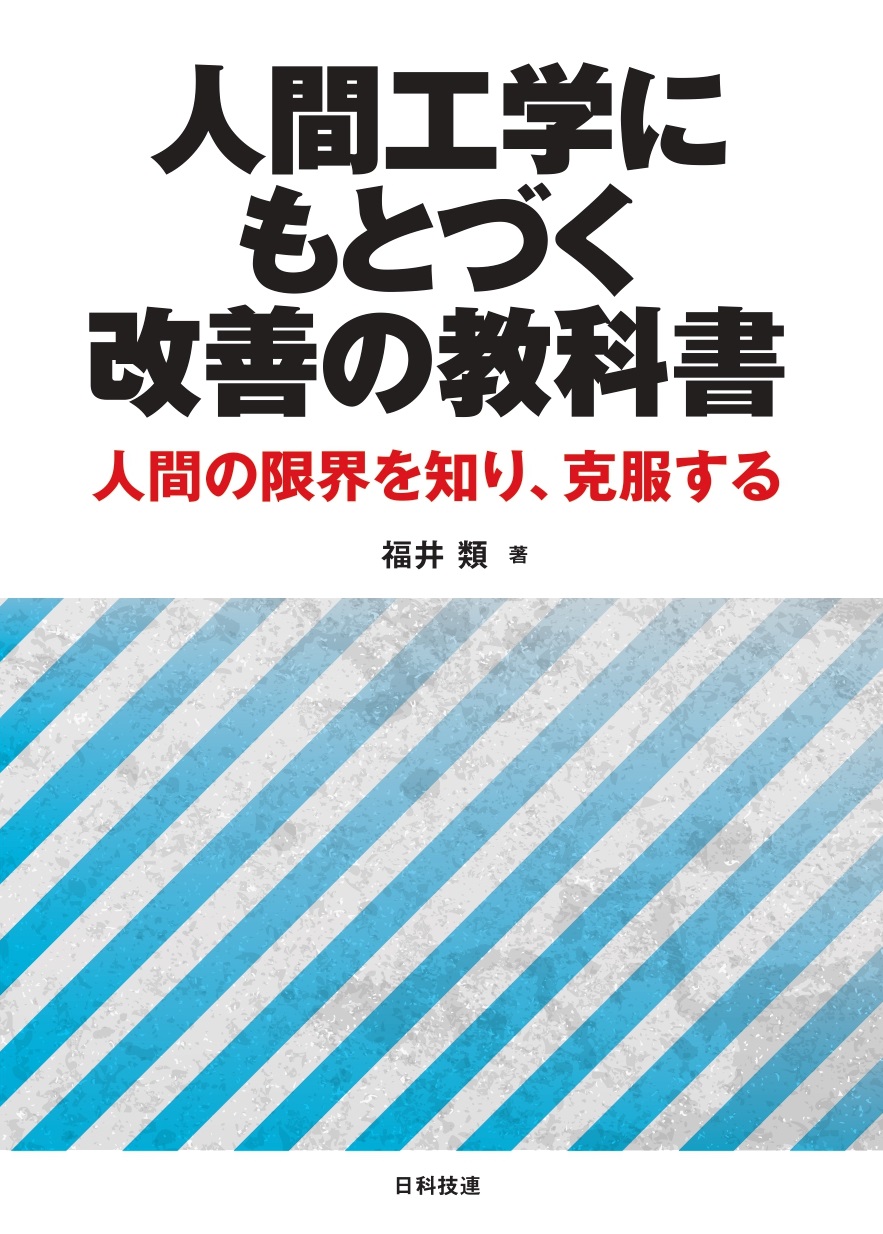
Title
Shippai no Kenkyu (A Study of Failure)
Size
256 pages, 127x188mm, softcover
Language
Japanese
Released
November, 2018
ISBN
978-486621-183-1
Published by
WAVE publishers
Book Info
See Book Availability at Library
Japanese Page
In order to avoid mistakes, and to generate creativity, it is important to recollect and capture the sense of incongruity in anxiety and uncertainty, and from that to begin thinking about proving hypotheses. The first step is to capture weak signals, such as intuition, inspiration, foresight, awareness, and discomfort. Although it can be somewhat emotional, if you are always seeking out material around you such as stimuli, impressions, anxiety, expectations, etc., you will be able to capture these weak signals naturally. However, even if this process can predict risks and opportunities, people immediately forget weak signals on their own. It is therefore important to always keep a notepad for ideas open, and to write in it. Today, IoT and AI are developing extraordinarily, including safety devices equipped with smart sensors to prevent careless mistakes, and knowledge is becoming something taught by AI. What humans must possess is the will to "do something". One must be free and active, but with intent. Whether it takes a week, a month, or even a year, it is fine to take your time, and so you should consider several hypotheses carefully and ponder the incongruity of the weak signals. For example, even with the question, "What should we eat for dinner?", it is sad to dispassionately reply, "I can't think of anything in particular" or "Anything’s ok". The food that suddenly comes to mind is a trigger to think. Write this in your ideas’ notebook. Rather than words, it is also fine to simply draw a picture. If you review the notebook, you should be able to recall a menu that prompts you to want to eat something. If you can decide this, detailed and specific plans, such as restaurants, menus, prices, access, companions, types of alcohol, contents of conversations etc. can be set one by one. Even if you have been in business for a long time, there are seldom sudden, radical ideas that seem to sell during meetings with customers. A person called an “ideas man” thinks in advance and accumulates a store of ideas in his head. When required he simply recalls these ideas, as though pulling them from a shelf to show off. This is not developing ideas on the spot as a last resort. If you monitor constantly for weak signals, you can capture risks and opportunities for yourself.
(Written by NAKAO Masayuki, Professor, School of Engineering / 2019)



 Find a book
Find a book




